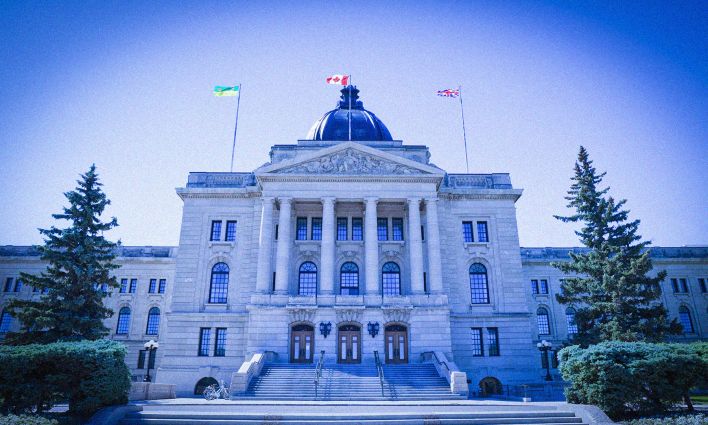Gabriel Attal and Justin Trudeau will have much to talk about during the French prime minister’s trip to Ottawa this week. Though their agenda covers a number of issues, the French Senate's awkward rejection of CETA—the Canada–European Union Comprehensive Economic and Trade Agreement—on March 21 will be prominent. These two great defenders of the agreement will no doubt ask themselves what it all means, and how CETA’s survival might be salvaged.
Should we care about the French vote? Yes, but not for the reasons Trudeau and Attal do. CETA was never what it was cracked up to be—by the Harper government that negotiated it or the Liberal government that labelled CETA “progressive” and ratified the deal without making any substantial changes to the text. The multi-party opposition to CETA in France—from greens, communists, socialists, and the right—is a sign of broad French antipathy to the agreement. We could use this opportunity to scrutinize the agreement anew.
Since CETA came into force nearly seven years ago, bilateral trade in goods and services between Canada and the EU has moderately increased with an advantage for European exports, reflected in Europe’s growing trade surplus with Canada. A large proportion of Canada's increased exports were of products such as oil and crude minerals, which were not subject to tariffs before the agreement was adopted. There is a significant climate downside to this outcome, as the German group PowerShift finds in a recent analysis of the treaty.
Canadian food importers quickly filled CETA's expanded quotas for duty-free European cheeses, which directly eat into the market for Canadian dairy producers and processors. Federal and provincial subsidies to dairy producers, to compensate for these losses, counteract what modest trade gains other sectors may have seen from the deal.
On the other hand, Canada's influential meat and food producer groups, with government support, are using closed-door CETA committees to pressure the EU into allowing Canadian meat products into Europe without respecting its stricter animal health and welfare rules. CETA's environmental rules are weak and unenforceable compared to more recent trade agreements. The European Commission continues to resist trade union demands for stronger enforcement of the treaty's labor provisions.
What’s more, Canada and the European Commission are quietly tweaking CETA's investment chapter to expand the use of international arbitration, rather than national courts, to settle disputes between investors and governments. This is highly suspect given growing international opposition to investor-state dispute settlement, particularly in Europe, and the fact CETA’s investor protections and “court” system have not been ratified by all EU member states.
The French Senate's decision to reject CETA—by an impressive margin of 211 to 44—was not taken lightly but was the result of reasoned debate about all of these problems with the deal and more. The senators refreshingly took account of large popular mobilizations against CETA in a number of European countries.
CETA will now have to undergo a second vote in France's National Assembly, the outcome of which should be respected by French President Emmanuel Macron and relayed to the European Commission. If the agreement is rejected again, it is possible CETA could be suspended.
Trudeau and Macron seem poised to dismiss all this discontent. That would be a political mistake. So would another rebranding exercise for a decidedly non-progressive trade deal from a bygone era.
Instead, Trudeau and Attal should ask themselves this week how much political capital their governments can spare to defend an unpopular deal whose modest gains in a few sectors don’t begin to make up for the social, environmental, and democratic downsides.
This article was originally published in French in Le Devoir.









